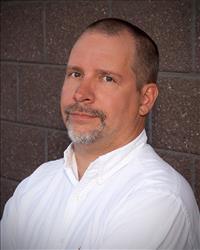H. Harrington (Bo) Cleveland

Professor-in-Charge, Undergraduate Programs
Bo Cleveland studies individual differences in substance use and misuse as well as how individuals’ characteristics modify the impact of experiences on substance use and addictive behaviors. His work focuses on person-context and person-experience interactions.
The Pennsylvania State University
University Park, PA 16803
- Developmental gene x environment interaction research
- Applying intensive longitudinal designs to at-risk populations
Bo Cleveland’s career is devoted to understanding differences in the impact of environments on peoples’ experiences and behaviors. An underlying assumption of his work is that experiences, such as those within families and friendships, act together with individuals’ characteristics to shape developmental outcomes, such as substance use and abuse as well as the impact of these behaviors on people’s lives. He focuses on two key areas. First, he works on gene environment interactions impacting initiation and escalation of substance use among adolescents. My primary research project in this area is the genetic extension of the PROSPER project. This research project, referred to as gPROSPER, examines whether and how the impacts of substance use interventions and family and peer experiences vary across adolescents based on their genetics. Second, I focus on understanding within-person processes that underlie relapse and recovery from substance abuse. My projects in this area began with research on daily processes of social support among individuals in stable recovery and continue with work using smart phones to collect momentary data on mood and cravings experienced by people addicted to opioids in treatment. Going forward my goal is to leverage the methodological resources at Penn State to inform and hopefully build interventions to help addicted individuals build and sustain recovery.
My research interests center around trying to understand how individuals’ characteristics affect how they are impacted by experiences, such as how genetics can change the impact of peers on behaviors, and how these characteristics affect the ways in which adolescents and young adults negotiate challenging experiences, such as addiction and homelessness.
How Genes and Experiences Work Together to Contribute to Risk and Resilience
My research is based upon the belief that environments do not have the same, or even similar, effects on all individuals—and that reasons for this heterogeneity of environmental effects include genetics. My primary research project in this area is the genetic extension of the PROSPER project. This research project, referred to as gPROSPER, examines whether and how the impacts of substance use interventions and family and peer experiences vary across adolescents based on their genetics. For example, do dopamine-related genes change the impact of interventions on adolescent substance use trajectories.
How Homeless Adolescents Build Resilient Lives
I am increasingly involved in researching the experiences of homeless adolescents and the impact of their daily stress on their lives. Our research group just finished up a smartphone data collection of adolescents who have been kicked out of their homes and are “doubled-up” with others. These data are being used to document the positive and negative social experiences encountered by these homeless youth and investigate the strategies they use to overcome the challenges that define their daily lives.
Daily Lives of Individuals in Treatment for and Recovery from Addiction
My emerging research on youth homelessness has grown out of a decade’s worth of work on daily lives of young adults in 12 step recovery and an ongoing project on patients in substance abuse treatment. This work, done in collaboration with the Penn State Hershey Medical School, uses smart phones to collect momentary data on mood and cravings experienced by people addicted to opioids. The within and between day patterns of mood and cravings will then be used to predict post-treatment recovery outcomes, such as relapse.
Other Projects
In addition to the above, I am collaborating with faculty through the Penn State Gene-Environment Research Initiative to build the Pennsylvania Twin Registry of young children and adolescents. This project focuses on how genes and environments work together to affect child-parent interactions, school readiness, and healthy daily behaviors.
Awards
- Barnie E. Rushing Outstanding Researcher Award for the College of Human Sciences, Texas Tech University, 2007
- Chancellor’s Council Distinguished Research Award Nominee for the College of Human Sciences, Texas Tech University, 2006
I study both adolescent risk behaviors in community samples and adolescents who experience enhanced environmental risk. Risk behaviors I study include drinking and smoking, as well as other externalizing behaviors. Part of this work considers how individuals’ characteristics, such as genes, can change the impact of social experiences. I also study homeless adolescents and individuals in treatment for and in recovery from addictions to substance use, the daily challenges they encounter, and why some overcome these challenges.
